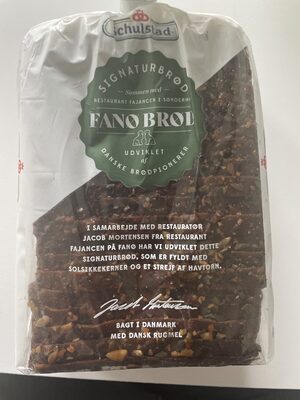
Barcode: 5701205009939
Fanø brød
HALAL
📝 Reason: All the listed ingredients are derived from plants, yeast, cultures, or simple inorganic substances like salt and water. No suspect E-codes or Haram ingredients were found, nor any presence of animal or meat sources. There is no indication of alcohol or ingredients that require Halal certification in this list. According to Quran 5:3 and IFANCA guidelines, as long as there are no Haram or doubtful ingredients or processes, the product is Halal.
🏷️ Category: Da:Rugbrød
📄 Certificates: N, /, A, Vegetarisch, Vegan
Ingredients:
Details
Introduction to Fanø brød
Fanø brød is a traditional Scandinavian bread, cherished for its delightful texture and wholesome ingredients. If you’re wondering whether this product meets Halal standards, you’re in the right place. In this post, we will analyze its Halal status by breaking down each ingredient and its sourcing.
Understanding Halal Status
According to Islamic dietary laws, Halal food is permissible. A food product is considered Halal if it does not contain any Haram (forbidden) components, such as certain animal products or alcohol. As per Islamic jurisprudence, if no Haram or questionable ingredients are present, the product can be labeled Halal. Fanø brød’s ingredient list is thoroughly inspected in this regard.
Ingredient Analysis
Let’s explore the ingredients found in Fanø brød:
- Water: Pure and simple, water is always Halal. Source.
- Sifted rye flour: This grain-based flour is considered Halal as it originates from rye. Source.
- Whole grain rye flour: Derived entirely from plant sources, it is also Halal. Source.
- Sunflower seeds: These seeds come from plants, ensuring their Halal status. Source.
- Rye grains: Being plant-based, rye grains are Halal as well. Source.
- Barley malt extract: As long as it is extracted without alcohol, this ingredient is Halal. Source.
- Syrup: Typically derived from sugar, it remains Halal unless mixed with alcohol, which is not the case here. Source.
- Sugar: A natural ingredient derived from sugar cane or beet, making it Halal. Source.
- Iodized salt: Simple table salt with iodine is inherently Halal. Source.
- Seabuckthorn puree: Derived from fruit, thus Halal. Source.
- Vinegar: Generally accepted as Halal according to the majority of Islamic scholars. Source.
- Yeast: A microorganism not derived from animals, therefore Halal. Source.
- Pumpkin seeds: These seeds come from pumpkins, again confirming their Halal status. Source.
- Rapeseed oil: Being vegetable-based, it is Halal. Source.
- Black pepper: This common spice is also derived from plants and is Halal. Source.
- Barley malt flour: Its Halal status depends on the alcohol content, which is typically absent in flour. Source.
- Enzymes (wheat): Enzymes from plant fermentation are Halal as long as they do not contain animal derivatives. Source.
- Sourdough culture: This is a result of fermentation using flour and water and is Halal as long as there is no alcohol. Source.
Conclusion
After reviewing the ingredients, it is clear that Fanø brød is Halal. All components are derived from plant sources or non-Haram ingredients. According to the relevant Islamic guidelines, including Quran 5:3 and IFANCA standards, this bread is fit for consumption by Halal-following individuals. It falls under the category of traditional Danish rye breads (Da:Rugbrød), making it a great option for those seeking healthful and permissible food choices. Enjoy your Fanø brød with peace of mind!
